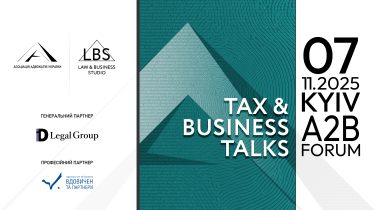Tax and AML compliance
With more than twenty years of experience of cooperating with clients, K.A.C. Group has developed a work approach not only aimed at the solution of specific tasks, but the one also concentrated on warning about and prevention of possible negative consequences for a client.
Among such consequences, there is tax compliance, which is designed to identify tax risks in advance and prevent the occurrence of situations with which they are associated. If it is not possible to exclude such situations, one may assess the tax risk and reduce its level. Tax compliance solves the following tasks: fulfilling the formal requirements of the law, regulatory authorities, investors, business partners; providing legal protection against claims from regulators, mitigation of penalties; improving the business image, increasing the confidence of inspectors.
Lawyers and auditors of K.A.C. Group in the tax field carry out the following compliance activities:
– analysis and assessment of tax legislation in the field of a client’s business, monitoring of its changes;
– analysis of business processes of a client’s enterprises and assessment of decisions made regarding compliance with tax laws;
– assessment of internal documents (including corporate accounting policies for tax purposes), analysis of their content, considering changes in the external legal environment;
– examination of agreements concluded by the organization for the presence of conditions in them that allow an ambiguous interpretation of tax legislation;
– analysis of the tax burden and identification of main directions of minimizing tax payments;
– tax planning in terms of structuring transactions and determining contractual policies;
– formation of a database on controversial tax situations;
– assessment of the degree of preparedness of the personnel responsible for tax calculations.
AML compliance is carried out by certified experts of K.A.C. Group in the field of financial monitoring, who also have international certification in the field of AML (Anti-Money Laundering). With the adoption of Law 2179 “On Prevention and Counteraction of the Legalization (Laundering) of Criminally Received Income”, this service becomes especially relevant. It includes:
– analysis of a client’s situation and reasons for the need to undergo the AML compliance procedure;
– analysis of documentation and financial statements, its comparison by dates, accounts, transactions;
– analysis of compliance with legal requirements in the field of financial monitoring at the enterprises of a client;
– identification of a client’s counterparties and determination of risk categories, based on the activities and information on counterparties;
– identification of business transactions and financial transactions of clients subject to mandatory financial monitoring;
– identification of unusual transactions and arrangements, as well as possible fraudulent schemes that will subsequently be subjected to financial monitoring, prevention of such transactions;
– upon request: searching, requesting and restoring documentation that a client lacks, creating a detailed transaction report requested by the regulator or the subject of primary financial monitoring, consulting employees on the matters of communication with them.





